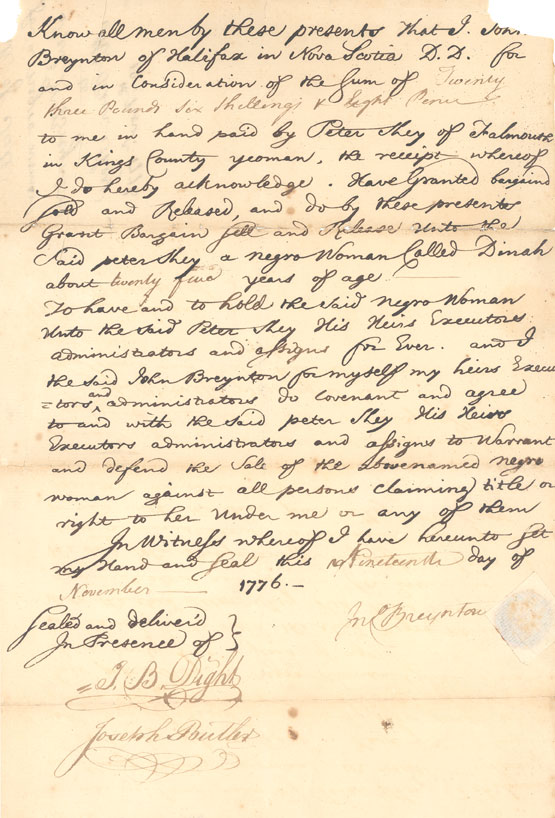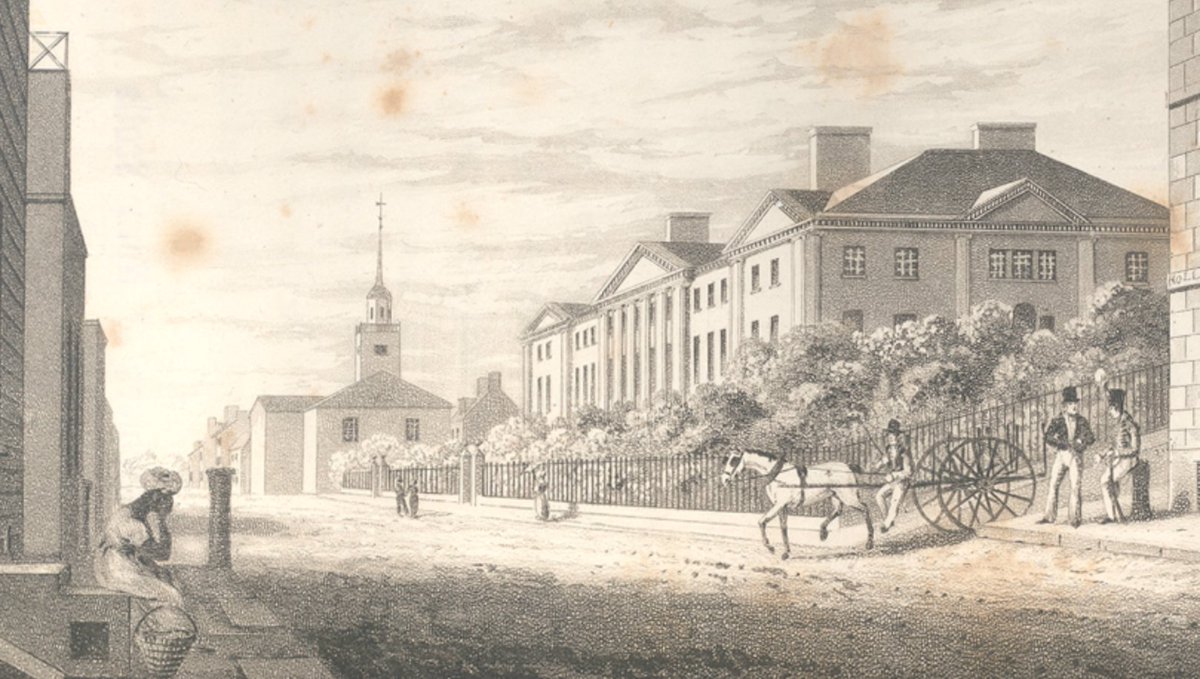Last week in #HIST2F90 the Atlantic World, we were following suggestions from Marisa Fuentes trying to use meagre sources to recreate slave lives as best we could – including this one from @NS_Archives for the sale of “Dinah” in Halifax in 1776. https://archives.novascotia.ca/africanns/archives/?ID=12
The idea was to try to fashion some kind of biography for Dinah, one that imagined her life, using only the fragments of data and context offered by the bill of sale.
Something like: sold out of a Halifax household, with a nearby community of slaves and free Blacks, onto a farm where such a broad community would be unlikely - from relatively free movement and community as an urban domestic slave to the social isolation of a farm.
One student went digging - he chooses to remain anonymous, but a H/T owed here - he tracked down Dinah’s buyer on a poll tax list, https://archives.novascotia.ca/census/polltax/returns/?ID=14067
And the seller, Society for the Propagation of the Gospel missionary John Breynton, in the DCB http://www.biographi.ca/en/bio/breynton_john_4E.html
He then went looking for other slave bills of sale to compare and found one for another Dinah in Massachusetts in 1769 @MHS1791
http://www.masshist.org/database/viewer.php?item_id=541&img_step=1&br=1&mode=large#page1
http://www.masshist.org/database/viewer.php?item_id=541&img_step=1&br=1&mode=large#page1
Probably, I told him, the name was a coincidence, but he persisted and found her purchaser, John Chandler of Petersham, near Worcester MA.
And, lo and behold, local genealogy has a John Chandler, loyalist, fleeing Worcester for Boston in 1774 and then Halifax in 1776 – the same year we find Dinah being sold.
http://homepages.rootsweb.com/~nbpast/family/Chandler/pafn05.htm
http://homepages.rootsweb.com/~nbpast/family/Chandler/pafn05.htm
The genealogy makes clear Chandler's financial losses (and thus a need to dispose of assets) and that he left Halifax for London in July 1776. Selling Dinah may have financed him pressing his Loyalist claims.
We can’t locate Dinah in the summer of 1776 – why would Breynton buy her in the spring and sell her in the fall? But everything else fits.
But everything else fits. And if they are the same woman, this allows us to imagine some small sense of biography for her life across borders in this chaotic revolutionary moment.
Beyond her limited agency, literally passed back and forth, from house to house, and province to province, we might imagine a woman who, in the summer of 1776 found herself returned to a larger Black world.
For the young woman from rural Petersham perhaps Falmouth was a return to an agricultural world she knew well? But one also imagines the Black community she might have found in Halifax, both free and enslaved, would have offered some community, and perhaps solace.
Offering students opportunities for independent research affords opportunities to explore the ethical dimension of the lives we deploy.
Like Jane in Dispossessed Lives, we'll never have full biographies for such people, but we can recover some sense of her place in the past, as a human being, not a commodity.

 Read on Twitter
Read on Twitter



